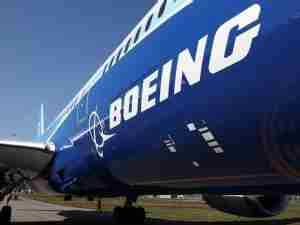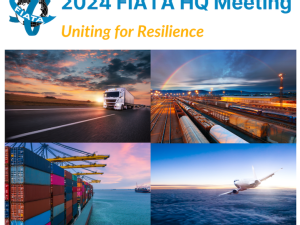Speaking at the annual Trans-Pacific Air Cargo Conference held in Los Angeles recently, Julian Keeling, President & CEO at Consolidators International, Inc. said that every participant in air cargo "must bite the bullet and raise its rates." He likened air cargo to a "timid giant" in children's stories, "who doesn't know his own strength."
Keeling asserted that moving cargo by air has become essential to thousands of companies on both sides of the Pacific. "We provide a service that to many shippers means the difference between profit and loss, increased or lessened market share and even acceptance or rejection of a company product. We should charge rates commensurate with the enormous value of our services," he declared.
"Yet this essential transportation service in some instances is actually working for nothing with revenues only generated by add-on fuel surcharges and security fees. Is this how we are going to pay the billions of dollars for all those new freighters ordered from Boeing and Airbus?" he asked.
Keeling was asked to comment on Asian air cargo opportunities "beyond China." The Consolidators International executive replied that in his estimation, "India will become a significant second to China as a generator of air cargo both inbound and outbound." He noted that while India's GDP is much less than China's than at present, the nation is growing at almost the same pace; seven percent for India and ten percent for China. "While India never will become number one in Asia because of China's twice as large population and almost obsessive zeal in becoming a world power, India, to use a racing expression, will place."
Noting that both India, and New Zealand where Keeling was born, once were members of the British Empire, the air cargo veteran of 35 years stated that both are democracies and "democracy always will trump dictatorship. India is throwing off its socialist heritage handed down by Nehru and Gandhi, and embracing capitalism with more enthusiasm than at any time in the past."
He pointed to an example in his own industry; the airline business. "For many years after independence, India had two state-supported domestic airlines, with both losing money. Today, India has nine privately-owned domestic carriers with most making money."
While India is accelerating down the road to capitalism, it is no paradigm of free enterprise, in Keeling's opinion. "Corruption remains rife; it takes 25 separate official stamps of approval by 25 government agencies before a business can start operating," he said. "Inland transportation must be greatly improved. The country cannot continue to depend almost entirely upon a 150-year old railway system built by the British to move troops around that vast nation. India also is almost exactly halfway round the world from the US, a great distance even for modern, long range jets."
Keeling concluded his remarks by stating that "while Asia remains the fastest growing air cargo market in the world, let's not forget other regions of the world. Europe, particularly its eastern nations where capitalism still is in its formative stages, and Latin America, are places that look promising for our industry."











